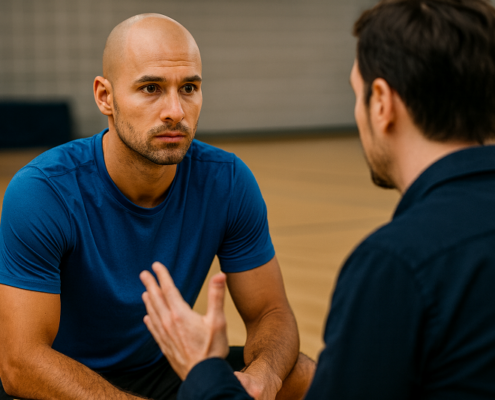Mental preparation techniques to build confidence, calm, and focus
The mind plays a decisive role in sports performance. Beyond technique and physical ability, it is often emotional control, concentration, and the ability to bounce back from mistakes that make the real difference. Sports psychologist Manuel Dupuis presents key mental preparation tools that help athletes unlock their full potential.
Mental imagery and resource anchoring
Mental imagery is a cornerstone of mental preparation. It involves visualizing successful situations, reactivating positive sensations, and mentally rehearsing actions with confidence and fluidity.
Through resource anchoring, athletes learn to trigger a useful mental state at the right moment — regaining confidence before a match, calming down in tense moments, or refocusing after a difficult play.
The “switch”: bouncing back after a mistake
Whether it’s losing the ball in football or missing a crucial point in tennis or table tennis, frustration can quickly throw an athlete off balance. Switch techniques help shift rapidly from a negative state to a neutral one, and then to a positive mindset — a kind of mental reset that allows the player to stay in the game and focus on the next action.
Concentration, focus, and mindfulness
Exercises in concentration, attention focusing, and mindfulness complete the mental toolkit. By returning to the breath, body sensations, or simple anchors, athletes limit mental distraction and build greater emotional stability. Over time, this fosters calm, clarity, and presence in high-pressure moments.
A tailor-made approach
The right technique always depends on the individual profile and the athlete’s specific needs. Sometimes, the challenge is not technical but emotional. In such cases, psychological support or even therapy may be more appropriate — especially during injuries, personal difficulties, or periods of low motivation.
Feeling better to perform better
The central goal remains the same: the athlete’s overall well-being. When an athlete feels more at ease, more confident, and in better harmony with coaches, teammates, and their environment, performance naturally follows. The mind is not a secondary factor — it’s a key driver of success.



